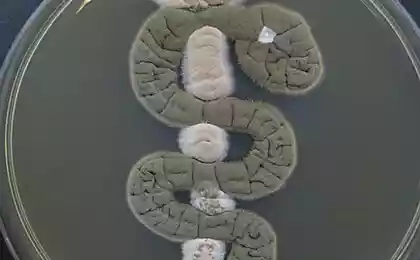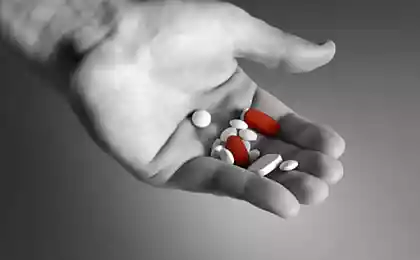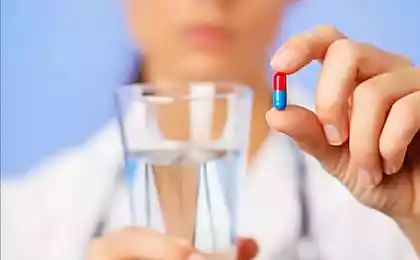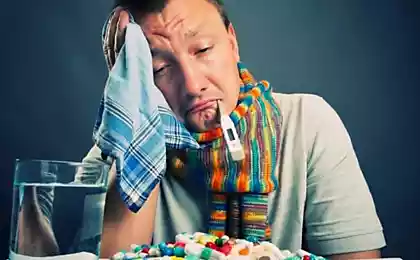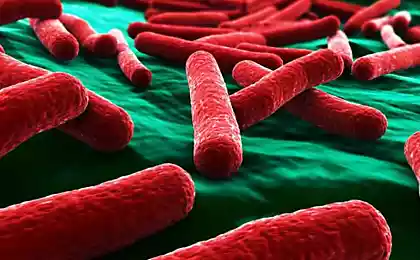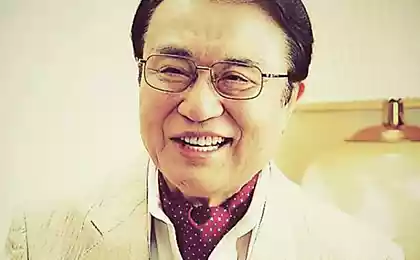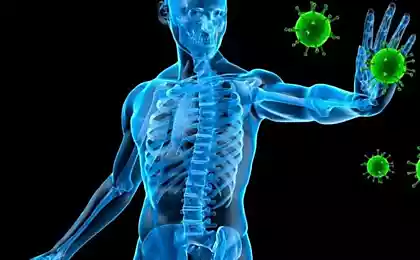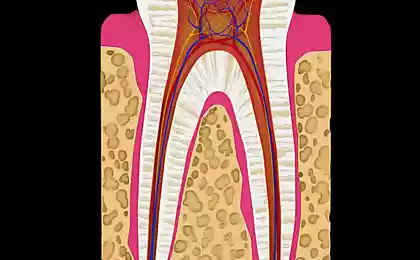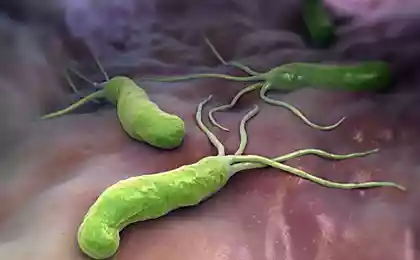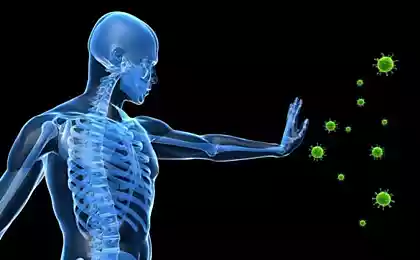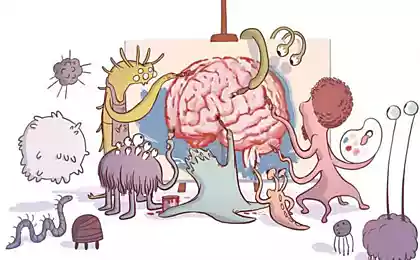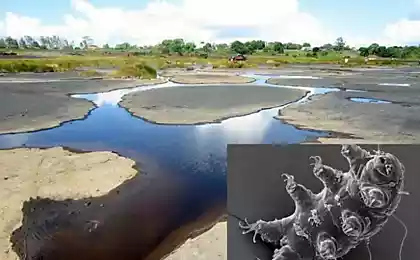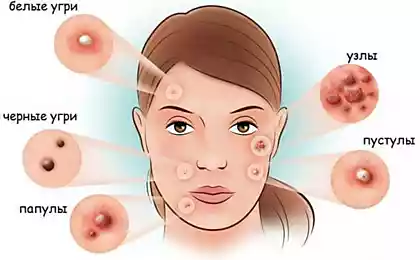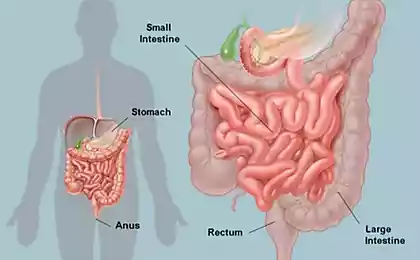517
Attention antibiotics! Why use should be thoughtful and careful
Antibiotics save lives. But we abuse them, often for purposes not related to the saving of lives, for example, for the treatment of influenza or for improving the profitability of poultry farming.
According to the researcher Ramanan Laxminarayan, as a result, the antibiotics will no longer help, as the bacteria against which they are directed, become more sustainable. Laxminarayan calls upon all of us (doctors and patients) to consider the antibiotics and their efficiency non-renewable resource and to use them thoughtfully and carefully. This presentation is a sobering look at how we can influence global trends in medicine.
https://embed.ted.com/talks/lang/ru/ramanan_laxminarayan_the_coming_crisis_in_antibiotics
SUBSCRIBE to OUR youtube channel that allows you to watch online, download from YouTube free video about the recovery, the rejuvenation of man. Love for others and ourselves, as the feeling of high vibrations — an important factor
0:11
The first patient was treated with antibiotics, was a policeman in Oxford.Working in the garden on her day off, he was scratched by a rose thorn. The scratch became infected, and in a few days his head was covered with abscesses, and eye damage was so severe that doctors had to remove it.
By February 1941, the poor man was at death's door. He was in the hospital. Radcliffe in Oxford. Luckily for him, a group of doctors led by Dr. Howard Florey were able to synthesize a small amount of penicillin. Penicillin was discovered by Alexander Fleming 12 years before this incident, but they have never treated people. Nobody knew if it will work. In enough pure form he could kill the patient. Florey and his team decided that if we were to apply penicillin, then it is better to choose quite hopeless patient.
1:13
Therefore, albert Alexander, a policeman from Oxford, and was introduced penicillin. During the day he went to the amendment. His fever and getting my appetite back. On the second day he felt much better. Supply has been terminated, and then the doctors began to collect the urine of the patient, resentational her penicillin and give it to the patient. It worked. On the fourth day the patient was on the way to healing. It was a miracle. On the fifth day they ran out of penicillin, and the poor man died.
1:51
This story has a sad end, but everything has changed for millions of people such as this girl was treated in the early 40's. She was dying from sepsis and as you can see, in just six dynablaster miracle drug penicillin, she recovered. It has saved millions of lives and changed the world's health care system. Antibiotics used in the treatment of such patients, but they also legkomyslenno used in other cases, such as for colds or the flu, when antibiotics do not help.
They are also extensively used subtherapeutic, i.e., in low concentrations, to accelerate the growth of chickens and pigs. Just to save on the price of meat, we force-fed animals with antibiotics — not to treat them from disease, and in order to stimulate growth.
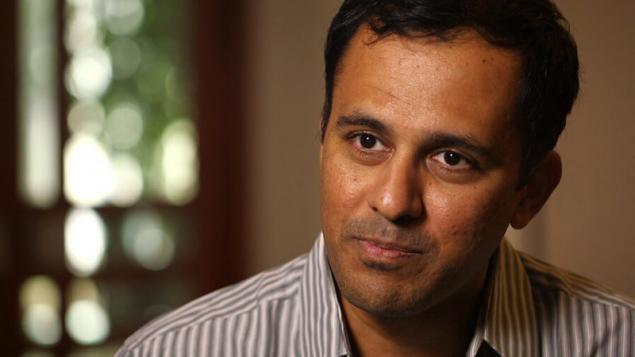
2:53
What does that leave us? The widespread use of antibiotics around the world renders such selection pressures on the bacteria that is now a problem of resistance because it led to survival of resistant bacteria.
3:10
I'm sure you've all read about it in Newspapers, you have seen articles in various magazines, but I wish you realized the importance of this problem. This is serious. On the next slide I show of carbapenem resistance in Acinetobacter. Acinetobacter — pathogens that live in hospitals, and carbapenems — the strongest class of antibiotics available to us to combat them.As you can see, in 1999, the stability map was less than 10% of the United States. Watch what happens on video.
3:57
Don't know where you live, but in any case, the situation is much worse than in 1999, is the problem of antibiotic resistance. This problem is global and affects both rich and poor countries. Of course, you may ask, is not purely a medical problem?
If you teach doctors less likely to use antibiotics, if you teach patients that they should not demand, the problem might be resolved, and pharmaceutical companymore will develop more new antibiotics. It turns out that the use of antibiotics is a fundamental aspect that distinguishes them from other medicines.
If I use antibiotics incorrectly or if I just use them, it affects not only me, but other people — just as my choice between car and plane travel, when I shift to all the rest of their costs in terms of climate change. However I not necessarily take this into account. Economists call it the tragedy of the Commons. The tragedy of the Commons is exactly what we are facing in the issue of antibiotics: we do not consider — and we are the patients, hospitals, entire health systems — do not take into account the costs we impose on others, how antibiotics are used in reality.
5:14
This problem is similar to the well-known problem of the expenditure of energy, and of course, energy consumption depletes resources and leads to local pollution and climate change. The problem of energy consumption, generally there are two solutions. The first method is more rational use of oil, which is similar to more nationalcosmopolitan antibiotics. There was a lot of money, we'll get to that in a second.The second way is follow the motto "Drill, baby, drill!", in the case of antibiotics, corresponds to the development of new drugs.
5:52
All these events are connected. The reason, because if we invest heavily in oil wells, we will have less incentives to save oil resources, just as it happens with antibiotics. The opposite scenario is also possible: if we use our antibiotics appropriately, we don't have to invest in the development of new drugs.
6:14
If you think that we have a balance between these two ways, think about what we actually play the game. This is a game in the joint evolution. In this photo we see the joint evolution of cheetahs and gazelles. Cheetahs began to run fast if they don't, they would be left without lunch. Gazelle, too, began to run fast if they don't, they would be lunch.
In this game we act against bacteria — but we are not cheetahs, and gazelles. But the bacteria could just for this statement, to produce offspring and to learn how to resist antibiotics through the selection, trial and error, doing it again and again. What are we doing to get ahead of the bacteria? We start the process of finding new drugs, we select a molecule, conduct clinical trials, and when we think we've done it, connected the FDA. Only after passing through all these stages, we are trying to stay one step ahead of the bacteria.
7:23
This game can't last forever, we can't win only with the help of new drugs. We need to slow down the process of joint evolution. We can borrow ideas from energy to tell us how to act in the case of antibiotics. Let's see what we do with energy prices: we are introducing taxes on emissions, i.e., the imposed costs of pollution on those who use the energy. Why not do the same with antibiotics?
Perhaps this will help to ensure their correct usage.There are subsidies for clean energy, less dirty fuels or does not require fossil hydrocarbons. You can draw an analogy: to avoid the use of antibiotics. What can serve as a good replacement?
Whatever sobresaliente antibiotics. These include improving hospital infection control, vaccinations, especially seasonal flu. Seasonal flu is the main driving force is antibiotic use, both in this country and many others.
Vaccination can help. The third way might be something like tradeable permits. They seem a remote possibility, but if we consider the possible shortage of antibiotics for many patients with infections, it can be assumed that ponadobitsya, whom to treat with antibiotics in the first place.
Might be considered clinical need, but also to be taken into account and the price. Consumer education works too. Antibiotics are often misused or discharged too much, not even knowing about it. Feedback mechanisms be useful in the energy sector including. When people find out that they use a lot of energy during the peak period, they usually begin to save. Something similar happened in the case of antibiotics.
In the hospital in St. Louis began to add the names of surgeons in the manner that depended on the quantity of antibiotics used in the previous month. It was made for informative purposes, anyone that is not shamed, but surgeons were able to obtain data that may have been forced to expresstrade use of antibiotics.
9:49
A lot can be done in the matter of supply. If you look at the price of penicillin, the daily cost will be 10 cents. This is a fairly cheap drug. If you take drugs, which appeared later, linezolid, or daptomycin — they are much more expensive. In a world where they are used to pay for antibiotics for 10 cents a day, the price of 180 dollars a day seems great.
What it says really? This price suggests that it is not necessary to rely more on cheap and effective antibiotics in the foreseeable future. The price signals that we probably need to pay attention to their rational use. Prices also provide us a signal that we need to start a search for other technologies.
This is similar to how gasoline prices push us to the development of electric vehicles. Rates is an important sign, and you need to pay attention to them, but we also have to consider the fact that, although the high price of antibiotics and seem unusual, they are insignificant compared to anistons doses of cancer drugs that only prolong the patient's life for a few months or a year, whereas antibiotics that have the potential to save a life. Need a new paradigm shift, and it's scary, because in many parts of this country and the world the thought of having to pay $ 200 per day of treatment with antibiotics, is simply unimaginable. We need to think about it.
11:24
There are replacement options — alternative technologies that you work with.It includes bacteriophages, probiotics, quorum sensing in bacteria, synbiotics.
11:37
It's all useful directions to explore, and they will become even more enticing when the price of new antibiotics starts to grow. We see that the market reacts to it. The government is now looking at ways of subsidizing new antibiotics and development. But there are challenges here. We don't want to just throw money at the problem. We want to vozmozhnostyami antibiotics in new ways that will support their correct use and sale, and that is the difficulty.
12:10
Back to the technology. You all remember the words of the famous movie about dinosaurs: "Nature will take its course". These technologies will not work forever. You need to remember that whatever technology we come up with, nature will find a way to work around it.
12:27
You might think that this problem only affects of the antibiotics and bacteria, but it turns out that the same problem exists in other areas. Multidrug resistant tuberculosis is a serious problem in India and South Africa. Thousands of patients die because of second-line drugs are expensive, and in some cases they don't work — it's TB extensively drug-resistant. Viruses are becoming resistant. Agricultural pests.
Malarial plasmodia. Now the health of many people in the world dependent on one drug, artemisinin, used to treat malaria.Resistance to artemisinin has already occurred, and if it spreads, it will put under prisoedinenii drug in the world, which we treat malaria, and which is safe and effective. Mosquitoes become immune. If you have children, you know what lice. And new Yorkers have a local landmark — the bugs. They also resistant. Here is an example from Europe. It turns out that rats are also resistant to poisons.
13:32
The General idea is that we have to have technology to control nature, only in the last 70, 80 or 100 years. And almost in a moment we squandered possibilities, because I didn't realize that natural selection and evolution will find a way to get it back.
We need to reconsider the use of means of control of biological organisms and ways of stimulating their development and implementation, and in the case of antibiotics — the purpose and use of this valuable resource. We really need to start thinking about them as natural resources. We are at a crossroads. We can rethink and carefully consider the incentives to change existing practices. The alternative is a world in which even a blade of grass a potentially lethal weapon.
14:35
Thank you.
14:37
(Applause).published
Rob knight: How our microbes make us who we arePhysicist and programmer from Harvard derived a formula of intelligence
Source: www.ted.com/talks/ramanan_laxminarayan_the_coming_crisis_in_antibiotics?language=ru
According to the researcher Ramanan Laxminarayan, as a result, the antibiotics will no longer help, as the bacteria against which they are directed, become more sustainable. Laxminarayan calls upon all of us (doctors and patients) to consider the antibiotics and their efficiency non-renewable resource and to use them thoughtfully and carefully. This presentation is a sobering look at how we can influence global trends in medicine.
https://embed.ted.com/talks/lang/ru/ramanan_laxminarayan_the_coming_crisis_in_antibiotics
SUBSCRIBE to OUR youtube channel that allows you to watch online, download from YouTube free video about the recovery, the rejuvenation of man. Love for others and ourselves, as the feeling of high vibrations — an important factor
0:11
The first patient was treated with antibiotics, was a policeman in Oxford.Working in the garden on her day off, he was scratched by a rose thorn. The scratch became infected, and in a few days his head was covered with abscesses, and eye damage was so severe that doctors had to remove it.
By February 1941, the poor man was at death's door. He was in the hospital. Radcliffe in Oxford. Luckily for him, a group of doctors led by Dr. Howard Florey were able to synthesize a small amount of penicillin. Penicillin was discovered by Alexander Fleming 12 years before this incident, but they have never treated people. Nobody knew if it will work. In enough pure form he could kill the patient. Florey and his team decided that if we were to apply penicillin, then it is better to choose quite hopeless patient.
1:13
Therefore, albert Alexander, a policeman from Oxford, and was introduced penicillin. During the day he went to the amendment. His fever and getting my appetite back. On the second day he felt much better. Supply has been terminated, and then the doctors began to collect the urine of the patient, resentational her penicillin and give it to the patient. It worked. On the fourth day the patient was on the way to healing. It was a miracle. On the fifth day they ran out of penicillin, and the poor man died.
1:51
This story has a sad end, but everything has changed for millions of people such as this girl was treated in the early 40's. She was dying from sepsis and as you can see, in just six dynablaster miracle drug penicillin, she recovered. It has saved millions of lives and changed the world's health care system. Antibiotics used in the treatment of such patients, but they also legkomyslenno used in other cases, such as for colds or the flu, when antibiotics do not help.
They are also extensively used subtherapeutic, i.e., in low concentrations, to accelerate the growth of chickens and pigs. Just to save on the price of meat, we force-fed animals with antibiotics — not to treat them from disease, and in order to stimulate growth.

2:53
What does that leave us? The widespread use of antibiotics around the world renders such selection pressures on the bacteria that is now a problem of resistance because it led to survival of resistant bacteria.
3:10
I'm sure you've all read about it in Newspapers, you have seen articles in various magazines, but I wish you realized the importance of this problem. This is serious. On the next slide I show of carbapenem resistance in Acinetobacter. Acinetobacter — pathogens that live in hospitals, and carbapenems — the strongest class of antibiotics available to us to combat them.As you can see, in 1999, the stability map was less than 10% of the United States. Watch what happens on video.
3:57
Don't know where you live, but in any case, the situation is much worse than in 1999, is the problem of antibiotic resistance. This problem is global and affects both rich and poor countries. Of course, you may ask, is not purely a medical problem?
If you teach doctors less likely to use antibiotics, if you teach patients that they should not demand, the problem might be resolved, and pharmaceutical companymore will develop more new antibiotics. It turns out that the use of antibiotics is a fundamental aspect that distinguishes them from other medicines.
If I use antibiotics incorrectly or if I just use them, it affects not only me, but other people — just as my choice between car and plane travel, when I shift to all the rest of their costs in terms of climate change. However I not necessarily take this into account. Economists call it the tragedy of the Commons. The tragedy of the Commons is exactly what we are facing in the issue of antibiotics: we do not consider — and we are the patients, hospitals, entire health systems — do not take into account the costs we impose on others, how antibiotics are used in reality.
5:14
This problem is similar to the well-known problem of the expenditure of energy, and of course, energy consumption depletes resources and leads to local pollution and climate change. The problem of energy consumption, generally there are two solutions. The first method is more rational use of oil, which is similar to more nationalcosmopolitan antibiotics. There was a lot of money, we'll get to that in a second.The second way is follow the motto "Drill, baby, drill!", in the case of antibiotics, corresponds to the development of new drugs.
5:52
All these events are connected. The reason, because if we invest heavily in oil wells, we will have less incentives to save oil resources, just as it happens with antibiotics. The opposite scenario is also possible: if we use our antibiotics appropriately, we don't have to invest in the development of new drugs.
6:14
If you think that we have a balance between these two ways, think about what we actually play the game. This is a game in the joint evolution. In this photo we see the joint evolution of cheetahs and gazelles. Cheetahs began to run fast if they don't, they would be left without lunch. Gazelle, too, began to run fast if they don't, they would be lunch.
In this game we act against bacteria — but we are not cheetahs, and gazelles. But the bacteria could just for this statement, to produce offspring and to learn how to resist antibiotics through the selection, trial and error, doing it again and again. What are we doing to get ahead of the bacteria? We start the process of finding new drugs, we select a molecule, conduct clinical trials, and when we think we've done it, connected the FDA. Only after passing through all these stages, we are trying to stay one step ahead of the bacteria.
7:23
This game can't last forever, we can't win only with the help of new drugs. We need to slow down the process of joint evolution. We can borrow ideas from energy to tell us how to act in the case of antibiotics. Let's see what we do with energy prices: we are introducing taxes on emissions, i.e., the imposed costs of pollution on those who use the energy. Why not do the same with antibiotics?
Perhaps this will help to ensure their correct usage.There are subsidies for clean energy, less dirty fuels or does not require fossil hydrocarbons. You can draw an analogy: to avoid the use of antibiotics. What can serve as a good replacement?
Whatever sobresaliente antibiotics. These include improving hospital infection control, vaccinations, especially seasonal flu. Seasonal flu is the main driving force is antibiotic use, both in this country and many others.
Vaccination can help. The third way might be something like tradeable permits. They seem a remote possibility, but if we consider the possible shortage of antibiotics for many patients with infections, it can be assumed that ponadobitsya, whom to treat with antibiotics in the first place.
Might be considered clinical need, but also to be taken into account and the price. Consumer education works too. Antibiotics are often misused or discharged too much, not even knowing about it. Feedback mechanisms be useful in the energy sector including. When people find out that they use a lot of energy during the peak period, they usually begin to save. Something similar happened in the case of antibiotics.
In the hospital in St. Louis began to add the names of surgeons in the manner that depended on the quantity of antibiotics used in the previous month. It was made for informative purposes, anyone that is not shamed, but surgeons were able to obtain data that may have been forced to expresstrade use of antibiotics.
9:49
A lot can be done in the matter of supply. If you look at the price of penicillin, the daily cost will be 10 cents. This is a fairly cheap drug. If you take drugs, which appeared later, linezolid, or daptomycin — they are much more expensive. In a world where they are used to pay for antibiotics for 10 cents a day, the price of 180 dollars a day seems great.
What it says really? This price suggests that it is not necessary to rely more on cheap and effective antibiotics in the foreseeable future. The price signals that we probably need to pay attention to their rational use. Prices also provide us a signal that we need to start a search for other technologies.
This is similar to how gasoline prices push us to the development of electric vehicles. Rates is an important sign, and you need to pay attention to them, but we also have to consider the fact that, although the high price of antibiotics and seem unusual, they are insignificant compared to anistons doses of cancer drugs that only prolong the patient's life for a few months or a year, whereas antibiotics that have the potential to save a life. Need a new paradigm shift, and it's scary, because in many parts of this country and the world the thought of having to pay $ 200 per day of treatment with antibiotics, is simply unimaginable. We need to think about it.
11:24
There are replacement options — alternative technologies that you work with.It includes bacteriophages, probiotics, quorum sensing in bacteria, synbiotics.
11:37
It's all useful directions to explore, and they will become even more enticing when the price of new antibiotics starts to grow. We see that the market reacts to it. The government is now looking at ways of subsidizing new antibiotics and development. But there are challenges here. We don't want to just throw money at the problem. We want to vozmozhnostyami antibiotics in new ways that will support their correct use and sale, and that is the difficulty.
12:10
Back to the technology. You all remember the words of the famous movie about dinosaurs: "Nature will take its course". These technologies will not work forever. You need to remember that whatever technology we come up with, nature will find a way to work around it.
12:27
You might think that this problem only affects of the antibiotics and bacteria, but it turns out that the same problem exists in other areas. Multidrug resistant tuberculosis is a serious problem in India and South Africa. Thousands of patients die because of second-line drugs are expensive, and in some cases they don't work — it's TB extensively drug-resistant. Viruses are becoming resistant. Agricultural pests.
Malarial plasmodia. Now the health of many people in the world dependent on one drug, artemisinin, used to treat malaria.Resistance to artemisinin has already occurred, and if it spreads, it will put under prisoedinenii drug in the world, which we treat malaria, and which is safe and effective. Mosquitoes become immune. If you have children, you know what lice. And new Yorkers have a local landmark — the bugs. They also resistant. Here is an example from Europe. It turns out that rats are also resistant to poisons.
13:32
The General idea is that we have to have technology to control nature, only in the last 70, 80 or 100 years. And almost in a moment we squandered possibilities, because I didn't realize that natural selection and evolution will find a way to get it back.
We need to reconsider the use of means of control of biological organisms and ways of stimulating their development and implementation, and in the case of antibiotics — the purpose and use of this valuable resource. We really need to start thinking about them as natural resources. We are at a crossroads. We can rethink and carefully consider the incentives to change existing practices. The alternative is a world in which even a blade of grass a potentially lethal weapon.
14:35
Thank you.
14:37
(Applause).published
Rob knight: How our microbes make us who we arePhysicist and programmer from Harvard derived a formula of intelligence
Source: www.ted.com/talks/ramanan_laxminarayan_the_coming_crisis_in_antibiotics?language=ru
Liz Burbo: "accept" has nothing to do with "be willing"
How to make an octagonal gazebo with a summer kitchen with your own hands
